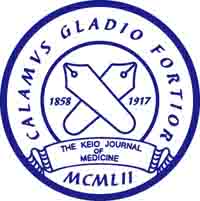<Title:> Differential X Chromosome Inactivation Patterns during the Propagation of Human Induced Pluripotent Stem Cells
<Author(s):> Tomoko Andoh-noda, Wado Akamatsu, Kunio Miyake, Tetsuro Kobayashi, Manabu Ohyama, Hiroshi Kurosawa, Takeo Kubota, Hideyuki Okano
<Abstract:> Human induced pluripotent stem cells (hiPSCs) represent a potentially useful tool for studying the molecular mechanisms of disease thanks to their ability to generate patient-specific hiPSC clones. However, previous studies have reported that DNA methylation profiles, including those for imprinted genes, may change during passaging of hiPSCs. This is particularly problematic for hiPSC models of X-linked disease, because unstable X chromosome inactivation status may affect the detection of phenotypes. In the present study, we examined the epigenetic status of hiPSCs derived from patients with Rett syndrome, an X-linked disease, during long-term culture. To analyze X chromosome inactivation, we used a methylation-specific polymerase chain reaction (MSP) to assay the human androgen receptor locus (HUMARA). We found that single cell-derived hiPSC clones exhibit various states of X chromosome inactivation immediately after clonal isolation, even when established simultaneously from a single donor. X chromosome inactivation states remain variable in hiPSC clones at early passages, and this variability may affect cellular phenotypes characteristic of X-linked diseases. Careful evaluation of X chromosome inactivation in hiPSC clones, particularly in early passages, by methods such as HUMARA-MSP, is therefore important when using patient-specific hiPSCs to model X-linked disease.
<Keywords:> induced pluripotent stem cells, X chromosome inactivation, epigenetic memory, reprogramming, Rett syndrome
<URL:> https://www.jstage.jst.go.jp/article/kjm/66/1/66_2016-0015-OA/_html


![Acute Kidney Injury as the First Manifestation of Sarcoidosis [Published online in advanced , by J-STAGE]](http://kjm.pupu.jp/blog/wp-content/uploads/2025/01/2023-0020-CR-100x100.jpg)
![Mechanism Underlying Post-menopausal Osteoporosis: HIF1α is Required for Osteoclast Activation by Estrogen Deficiency [Published online Keio J Med, 64, 44-47, by J-STAGE]](http://kjm.pupu.jp/blog/wp-content/uploads/2015/10/kjm_2015-0003-RE1-100x100.jpg)
![Network Approaches to Uncover Pathogenesis and Therapeutic Targets of Inflammatory Bowel Diseases [Published online Keio J Med, 72, 29-43, by J-STAGE]](http://kjm.pupu.jp/blog/wp-content/uploads/2023/06/2022-0015-IR-100x100.jpg)
![Network Approaches to Uncover Pathogenesis and Therapeutic Targets of Inflammatory Bowel Diseases [Published online in advanced , by J-STAGE]](http://kjm.pupu.jp/blog/wp-content/uploads/2023/03/2022-0015-IR-100x100.jpg)
![Clinical Significance of Right Ventricular Function in Pulmonary Hypertension [Published online in advanced , by J-STAGE]](http://kjm.pupu.jp/blog/wp-content/uploads/2021/01/2020-0015-IR-100x100.jpg)
![Clinical Complete Response of Recurrent Gastric Cancer after Third-line CPT-11 Chemotherapy [Published online Keio J Med, 72, 60-64, by J-STAGE]](http://kjm.pupu.jp/blog/wp-content/uploads/2023/06/2022-0004-CR-100x100.jpg)
![Cardiopulmonary Resuscitation Training in Schools: A Comparison of Trainee Satisfaction among Different Age Groups [Published online Keio J Med, 65, 49-56, by J-STAGE]](http://kjm.pupu.jp/blog/wp-content/uploads/2016/09/2015-0009-OA-100x100.jpg)
![Pupil Dynamics-derived Sleep Stage Classification of a Head-fixed Mouse Using a Recurrent Neural Network [Published online in advanced , by J-STAGE]](http://kjm.pupu.jp/blog/wp-content/uploads/2023/02/2022-0020-OA-100x100.jpg)
![Current Management of Chronic Constipation in Japan [Published online Keio J Med, 72, 95-101, by J-STAGE]](http://kjm.pupu.jp/blog/wp-content/uploads/2023/12/2022-0036-IR-100x100.jpg)
![Percutaneous Tendon Needling without Ultrasonography for Lateral Epicondylitis [Published online Keio J Med, 69, 37-42, by J-STAGE]](http://kjm.pupu.jp/blog/wp-content/uploads/2020/06/2019-0004-OA-100x100.jpg)